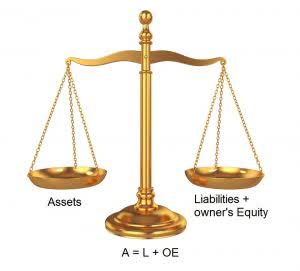

Gross Profit Margin: Formula and What It Tells You

As you can see there is a heavy focus on financial modeling, finance, Excel, business valuation, budgeting/forecasting, PowerPoint presentations, accounting and business strategy. This means that 40% of each dollar earned contributes to covering other expenses and generating net profit. For a business that simply buys and re-sells merchandise, the direct materials figure would represent only the actual cost of the goods being purchased for resale.

Strategies to Improve Gross Margin Ratio
Learn financial statement modeling, DCF, M&A, LBO, Comps and Excel shortcuts. The revenue and cost of goods sold (COGS) of each petty cash company is listed in the section below. To express the metric in percentage form, the resulting decimal value figure must be multiplied by 100. Total revenue is the final amount of your net sales for a given period. This includes any discounts, returns, and other interactions that can impact the final amount from your sales.
- Put another way, gross margin is the percentage of a company’s revenue that it keeps after subtracting direct expenses such as labor and materials.
- For the past 52 years, Harold Averkamp (CPA, MBA) has worked as an accounting supervisor, manager, consultant, university instructor, and innovator in teaching accounting online.
- This stark difference highlights why gross margin is crucial for assessing core profitability.
- This indicates that after covering all costs, Company A retains 20% of its revenue as net profit.
- You can find the revenue and COGS numbers in a company’s financial statements.
🎓 Master Budgeting & Forecasting with the Financial Planning & Analysis Course
The concept of GP is particularly important to cost accountants and management because it allows them to create budgets and forecast future activities. This means if she wants to be profitable for the year, all of her other costs must be less than $650,000. the gross margin ratio: Conversely, Monica can also view the $650,000 as the amount of money that can be put toward other business expenses or expansion into new markets. The gross margin is the revenue remaining upon subtracting cost of goods sold (COGS), expressed as a percentage.

Final Thoughts: Evaluating Gross Profit Margin
This obviously has to be done competitively otherwise goods will be too expensive and customers will shop elsewhere. Additionally, it’s important to conduct a longer-term analysis to ensure growth trends are ongoing. You can also use websites like Stock Analysis to calculate this metric for you.
- The gross profit is the difference between the net sales and cost of goods sold.
- Here’s what appears on Monica’s income statement at the end of the year.
- When assessing a good gross margin, avoid comparing across industries and instead compare companies of similar size in the same industry.
- The gross margin measures the percentage of revenue a company retains after deducting the cost of goods sold (COGS).
- Gross margin ratio is just one of many metrics investors use to evaluate whether a company is likely a good investment opportunity.
- Analysts generally consider a gross margin ratio of 50-70% to be good.
Understanding your business’s financial health is crucial for making informed decisions. One key metric that provides valuable insights into profitability is the gross margin ratio. In this section, we’ll delve into the intricacies https://libre.arq.br/medicare-lifetime-reserve-days-rules-costs-and/ of this ratio, exploring its significance, calculation, and trends.
Gross margin ratio: formula, calculations, and what it tells you
She has several different lines of clothing and has proven to be one of the most successful brands in her space. Here’s what appears on Monica’s income statement at the end of the year. This is most likely when there are few other competitors from which customers can buy, and especially when supplies are tight. Prices might also be increased in exchange for quicker delivery times or a greater diversity in product offerings. Let’s examine two fictional companies, TechGadgets Inc. and BasicGoods Corp., to see how gross margin plays out. These produce or sell goods and services that are always in demand, like food and beverages, household products, and personal care products.

They dream of the fame and fortune that awaits them if only they had the funding to pursue it. But the reality is that as the product is built and shared with customers, flaws in their concept are discovered that – if not overcome – will kill the business. You’d like to evaluate Company DD’s profitability because you think it might make a good addition to your investment portfolio.


